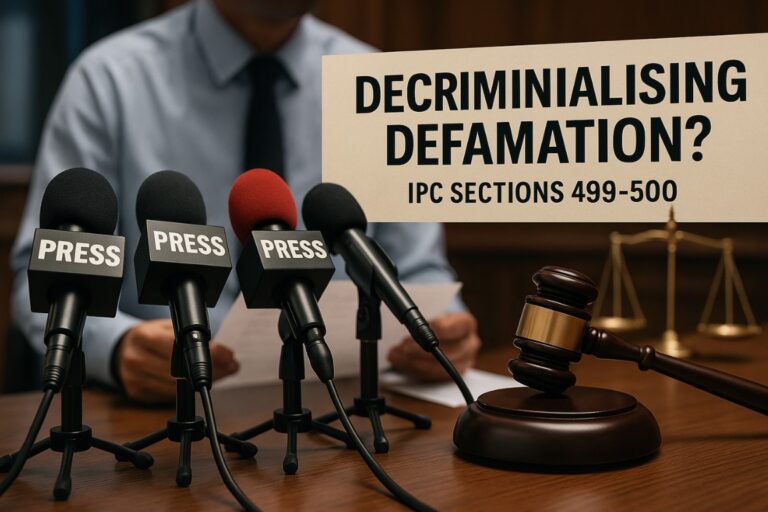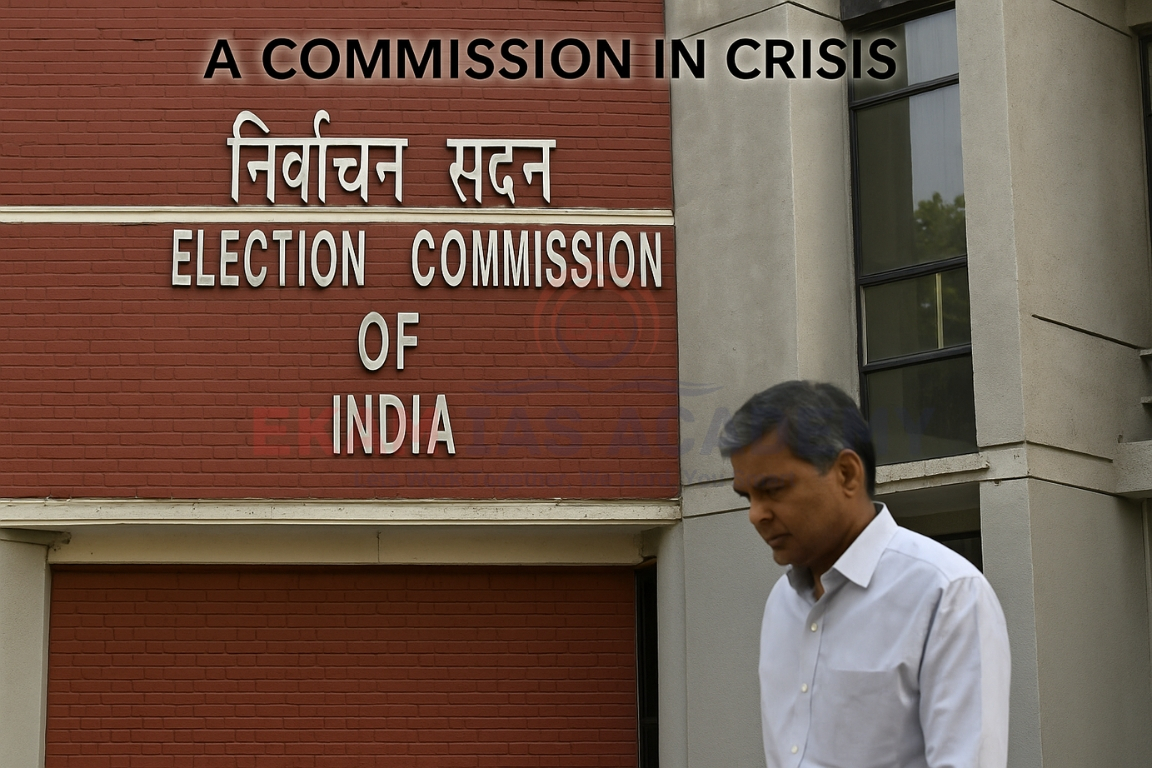Justice M.M. Sundresh of the Supreme Court recently observed that it is “high time to decriminalise defamation.”
Defamation in India
- Defamation is the act of making false statements about a person that harms their reputation. It can be criminal (punishable under law) or civil (compensation claims).
- Two types in India:
- Civil Defamation: Compensation claimed in civil courts.
- Criminal Defamation (IPC Sections 499–500): Punishable with imprisonment up to 2 years, fine, or both.

Place in Indian Law and History
- In India, defamation is addressed under Section 499 and 500 of the Indian Penal Code (IPC) for criminal defamation and under civil law for damages.
- The Supreme Court in the Subramanian Swamy vs. Union of India (2016) case upheld criminal defamation as a reasonable restriction on free speech, protecting reputation as part of the right to life.
Supreme Court’s Position So Far
- 2016 – Subramanian Swamy vs Union of India: Court upheld criminal defamation as a reasonable restriction on free speech under Article 19(2).
- It linked right to reputation with Article 21 (Right to Life and Dignity).
- However, the judgment faced criticism for curbing press freedom and political expression.
Recent Developments
- Justice Sundresh’s oral remark highlights the overuse and misuse of criminal defamation.
- Case context: Petition by The Wire and its journalist challenging summons in a case filed by a former JNU professor.
- The court stayed the proceedings and tagged it with other pending criminal defamation cases, including those involving Rahul Gandhi and Shashi Tharoor.
- The SC has repeatedly cautioned that courts should not be used to settle political or personal rivalries.
Key Issues with Criminal Defamation
- Misuse for political vendetta: Leaders often face multiple cases for their speeches.
- Burden on judiciary: Trial courts handle numerous defamation cases that could be civil matters.
- Chilling effect: Journalists, activists, and opposition leaders avoid speaking freely.
- No clear public interest: Treating private disputes as “crimes” does not serve society at large.
Way Forward
- Decriminalisation: Retain defamation only as a civil wrong, with compensation, not jail.
- Strengthen free speech: Ensure criticism of leaders/policies is not criminalised.
- Balance reputation & expression: Protect dignity through civil law remedies.
Conclusion
The SC’s observation reignites the debate on whether India should shift defamation entirely to the civil law domain, ensuring both protection of reputation and safeguarding of democratic free speech.





